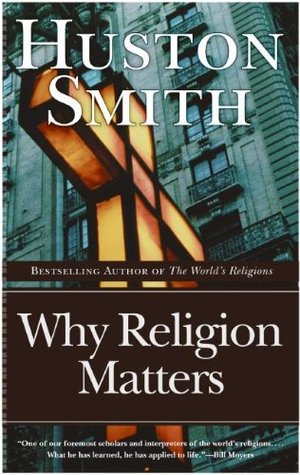Kindle Notes & Highlights
by
Huston Smith
Read between
January 21 - March 12, 2021
When, with the inauguration of the scientific worldview, human beings started considering themselves the bearers of the highest meaning in the world and the measure of everything, meaning began to ebb and the stature of humanity to diminish.
Wherever people live, whenever they live, they find themselves faced with three inescapable problems: how to win food and shelter from their natural environment (the problem nature poses), how to get along with one another (the social problem), and how to relate themselves to the total scheme of things (the religious problem).
Cosmology is the study of the physical universe—or the world of nature as science conceives of it—and is the domain of science. Metaphysics, on the other hand, deals with all there is. (The terms worldview and Big Picture are used interchangeably with metaphysics in this book.) In the worldview that holds that nature is all there is, metaphysics coincides with cosmology. That metaphysics is named naturalism.
In The Postmodern Condition, Jean François Lyotard goes so far as to define postmodernism as “incredulity toward metanarratives,” a synonym for metaphysics. The incredulity takes three forms that grow increasingly shrill as they proceed. Postmodern minimalism contents itself with pointing out that we have no consensual worldview today; “we have no maps and don’t know how to make them.” Mainline postmodernism adds, “and never again will we have a consensual worldview, such as prevailed in the Middle Ages, Elizabethan England, or seventeenth-century New England; we now know too well how little
...more
The only choice we have is to be consciously aware of our worldviews and criticize them where they need criticizing, or let them work on us unnoticed and acquiesce to living unexamined lives.
We should enter our new millennium by running a strainer through our past to lift from each of its three periods the gold it contains and let its dross sink back into the sands of history. Modernity’s gold—i.e., science—is certain to figure importantly in the third millennium, and postmodernity’s focus on justice likewise stands a good chance of continuing. It is the traditional worldview that is in jeopardy and must be rehabilitated if it is to survive.
I myself regularly receive letters both from doomsday prophets who see us going down the drain like Rome and from their opposite numbers—bright-eyed, bushy-tailed New Agers who sound as if they expect a mutation of consciousness to reopen the gates of Eden for two-way traffic any day now.
All great literature, poetry, art, philosophy, psychology, and religion tries to name and analyze this longing. We are seldom in direct touch with it, and indeed the modern world seems set on preventing us from getting in touch with it by covering it with an unending phantasmagoria of entertainments, obsessions, addictions, and distractions of every sort.
The signature of myth is always its happy ending, which makes myths like fairytales writ large. Fairytales locate their happy endings—marrying the princess—in this world; myths anchor that ending in the final nature of things, which conquers death itself.
As for the scientific worldview, there is no way that a happy ending can be worked into it.
Scientism adds to science two corollaries: first, that the scientific method is, if not the only reliable method of getting at truth, then at least the most reliable method; and second, that the things science deals with—material entities—are the most fundamental things that exist.
There is no institution today that has the power to say to science, Stand back; that’s my turf you’re poaching on.
For it cannot be said too often that the issue between science and religion is not between facts and values. That issue enters, but derivatively. The fundamental issue is about facts, period—the entire panoply of facts as gestalted by worldviews.
With rising tuition costs most students must now work while they learn, which leaves them tired much of the time.
Higher education has always been a vehicle for social mobility, but now a college degree is needed simply to stand still and stave off the specter of the minimum wage.
Materialism holds that only matter exists. Naturalism grants that subjective experiences—thoughts and feelings—are different from matter and cannot be reduced to it, while insisting that they are totally dependent on it. No brains, no minds; no organisms, no sentience.
Though I say that the scientific worldview has taken over, I must stress again that this has not been by design. The takeover is simply the culmination of the unconsidered outworkings in the university of the scientism that imbues modernism throughout. The incredible success of science acts like a magnet on the other departments of the university and causes them to ape its methodology.
Whereas experimental psychology deals with people as objects, clinical psychology approaches them as subjects.
The elites’ attitude to religion ranges from indifference to active hostility. It rests on a caricature of religious fundamentalism as a reactionary movement bent on reversing all the progressive measures achieved over the last several decades.


